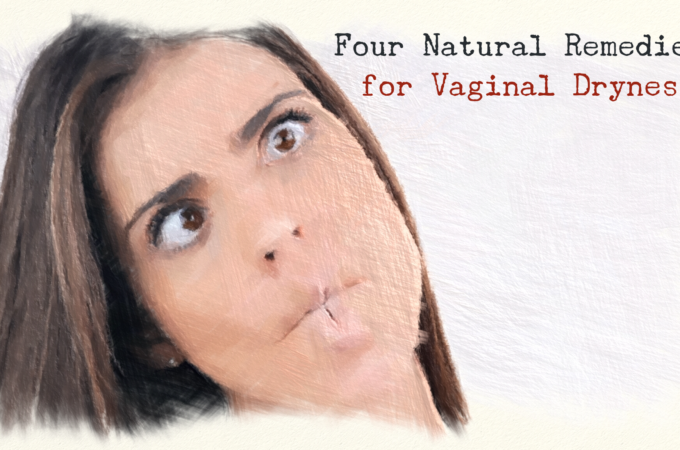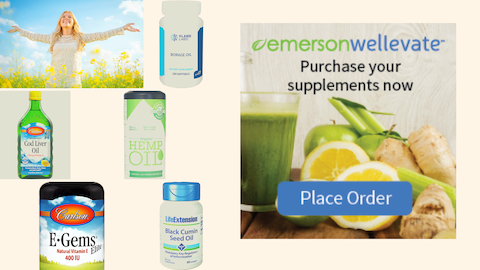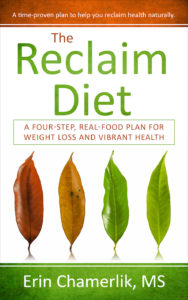
Four Natural Remedies for Vaginal Dryness
Written by Erin Chamerlik
Many women experience vaginal dryness, and it can happen at any age, not just around menopause. Vaginal dryness can result from aging, changing hormones, medication, infection, stress and Sjogren’s syndrome. Vaginal dryness can cause pain and reduce a woman’s quality of life.
As we age our sex hormones decline, including estrogen, progesterone, testosterone and DHEA. With the decline in hormones comes unwanted symptoms. Some of these symptoms like hot flashes, may go away, but vaginal dryness is persistent.
While the problem is common, when women consult with their doctors, they typically are not offered natural solutions. Be sure to consult with a functional medicine physician or natural health practitioner to have your hormone levels evaluated. Bioidentical hormone therapy can be very beneficial.
Here are four natural options that have been effective for many women.
1. Clean, real food diet, rich in healthy fats
- Improving the diet is key to overall health as well as vaginal health. Be sure to increase your intake of vegetables, protein and quality fat. Enjoy free range eggs, grass-fed meats, butter from grass-fed cows, wild caught fatty fish, avocados, avocado oil, olive oil, and coconut oil.
- Supplementing with Vitamin E, Omega-3 fatty acids and GLA (gamma linoleic acid) can also provide benefits. Borage oil, Evening Primrose oil, Black Seed oil (Nigella sativa) and hemp oil are examples of oil supplements that contain GLA. These oils may have estrogen-like activity proving benefits for symptoms of menopause like vaginal dryness. (7) (8)

2. Natural lubricants
Avoid using lubricants with unwanted chemicals like dimethicone, parabens and preservatives. Instead think of using healthy fats and oils like organic, cold pressed jojoba oil, unrefined coconut oil, or even extra virgin olive oil.
3. Royal jelly
Royal jelly is a popular, traditional food that is known to promote health. It is a viscous substance secreted by worker bees as a food for the queen bee and queen bee larva.
Diverse physiological and pharmacological functions of royal jelly in humans
- Vasodilative – causes dilation of the blood vessels (1)
- Hypotensive – lowers blood pressure (1)
- Anti-hypercholesterolemic – effective against elevated cholesterol levels (2)
- Anti-tumor – helps prevent formation of tumors (2)
Royal jelly used vaginally has been shown to improve quality of life for postmenopausal women.
In a double-blind randomized controlled clinical trial, 90 postmenopausal women between 50 and 65 years old participated in the study. The women were divided into three groups of 30 and given either royal jelly vaginal cream 15%, vaginal Premarin (estrogen), or placebo lubricant (KY Jelly) for three months. The vaginal royal jelly was significantly more effective than vaginal Premarin cream or placebo lubricant in improving quality of life. (3)
Royal jelly taken orally relieves symptoms of menopause
Another study involving 200 postmenopausal women (45–60 years) found that royal jelly taken as an oral supplement improved vaginal dryness and other common symptoms of menopause like hot flashes, irritability and bladder problems.
Researchers reported, “The findings showed that daily consumption of oral royal jelly (1000 mg) for eight weeks was effective in alleviating the menopausal symptoms.” (4)
4. CBD oil
There are no clinical studies looking at the benefits of cannabidiol (CBD) for vaginal dryness, but you might want to give CBD a try. Anecdotally, I have had clients report that their vaginal dryness resolved after consistently using CBD oil sublingually for three months.
CBD has been shown to help with sleep problems and mood issues as well as reduce pain and inflammation and it helps balance our body’s endocannabinoid system (ECS). (5) (6) The ECS is a system in the body made up of cannabinoid receptors and endogenous cannabinoids. Endocannabinoid receptors are located throughout the body, including the reproductive system. (9)
The ECS plays a role in many aspects of health including regulating mood, hormone levels, appetite, memory, sleep, fertility, and pain. The ECS works to bring homeostasis, or balance, to the body. The body’s ECS can be deficient leading to symptoms of menopause. It is believed that supporting the ECS with exogenous plant cannabinoids (like CBD oil) can bring balance to the female reproductive system (10), reducing unwanted symptoms of menopause.
When choosing a CBD product, quality is critical. Be sure that the CBD is sourced from USA organic hemp and tested by a third party independent laboratory for purity and potency. Every batch of CBD should have a Certificate of Analysis readily available for viewing. See my posts about CBD.
Conventional medical doctors offer women hormone replacement therapy (HRT) to help with symptoms of menopause, like vaginal dryness, but less than 30% of menopausal women take HRT and only 15% remain on HRT for long periods of time. Most women refuse HRT for a variety of reasons concerning the fear of weight gain and cancer. (11) Natural remedies offer a safer option and are a great place to start.
References
- https://www.ncbi.nlm.nih.gov/pmc/articles/PMC6475742/
- https://www.bienli.ch/data/html/rjbookreview.pdf
- https://www.ncbi.nlm.nih.gov/pmc/articles/PMC5217810/
- https://www.ncbi.nlm.nih.gov/pubmed/31470366
- https://www.ncbi.nlm.nih.gov/pmc/articles/PMC3763649/
- https://www.ncbi.nlm.nih.gov/pubmed/31382646
- https://journals.tbzmed.ac.ir/PDF/APB/Manuscript/APB-3-31.pdf
- https://www.ncbi.nlm.nih.gov/pmc/articles/PMC4884222/
- https://www.ncbi.nlm.nih.gov/pubmed/31785471
- https://www.ncbi.nlm.nih.gov/pubmed/21227997
- https://www.mdpi.com/1010-660X/55/9/544/htm
Recommended
-
Dandelion for Liver Support and Health BenefitsJuly 20th, 2024
-
Modified Citrus PectinJuly 11th, 2024
-
Bentonite Clay Mask for Face and ArmpitsJuly 8th, 2024
-
Two Supplements for Erectile DysfunctionJune 30th, 2024









